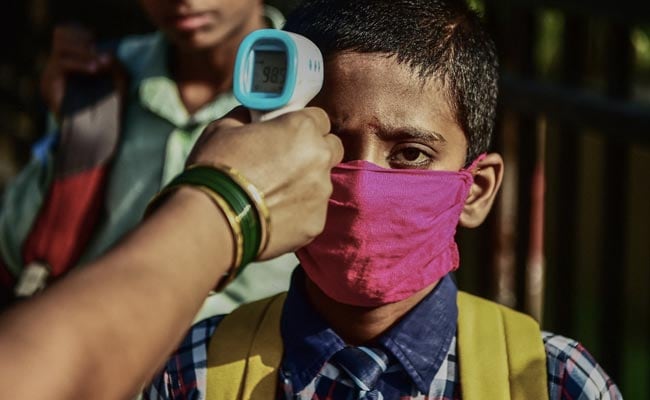PM Modi's meeting comes amid rising global concern about the new 'variant of concern' Omicron
Prime Minister Narendra Modi is meeting top officials to review the COVID-19 and vaccination situation in the country. Cabinet Secretary Rajiv Gauba; PK Mishra, the Principal Secretary to the Prime Minister; Health Secretary Rajesh Bhushan; Dr VK Paul, the chief of the country's Covid task force, are at the meeting, according to news agency ANI.
The meeting comes amid concern over the B.1.1.529 strain of the coronavirus, renamed Omicron by the World Health Organization, which has been red flagged for a number of mutations that might make it more resistant to vaccines, increase transmissibility and lead to more severe symptoms.
The variant - first detected in South Africa this week, and since reported from Botswana, Hong Kong, Israel, and Belgium - is believed to have 50 mutations, including over 30 on the spike protein and 10 on the receptor binding domain.
The spike protein is the target of most current COVID-19 vaccines and is what the virus uses to unlock access to our body's cells. Researchers are still trying to confirm whether this makes it more transmissible or lethal than earlier variants, and if existing vaccines can protect against the strain.
The WHO has tagged Omicron as a 'variant of concern', which puts it alongside the globally-dominant Delta, plus its weaker rivals Alpha, Beta and Gamma.

The B.1.1.529 variant could be even more infectious than the Delta variant that swept India (File)
Last night the government said scheduled international passenger flights to and from India could return to normal, but only for countries not deemed 'at risk' by the Health Ministry.
South Africa, Botswana, Israel, and Hong Kong are on the 'at risk' list as of Thursday night, meaning only 75 per cent of scheduled passenger flights will be allowed till further notice.
On Thursday India called for rigorous screening of passengers from South Africa, Botswana, and Hong Kong, and the Health Ministry said: "This variant... has serious public health implications in view of recently relaxed visa restrictions and opening of international travel."
Meanwhile, the United Kingdom, Singapore and Israel have stopped flights from South Africa, Botswana and four other African nations. Germany and Italy have also banned most travel from South Africa, news agency AFP said. South Africa has criticised these decisions as "rushed".

India has called for rigorous screening of passengers from South Africa, Botswana, and Hong Kong (File)
The United States has also imposed a travel ban on seven southern African countries. Namibia, Eswatini, Lesotho, Malawi, and Mozambique are on the list, as are South Africa and Botswana.
The WHO, however, has cautioned countries against immediately imposing travel restrictions, calling for a "risk-based and scientific approach". Dr Maria Van Kerkhove, WHO's COVID-19 Technical Lead, this week also underlined the importance of ensuring complete vaccination.
Unlike several European countries - most notably Germany, the Netherlands, the Czech Republic, and Hungary, which are posting record daily cases - India has seen a decline in Covid numbers.
This morning the seven-day moving average of new cases was below 10,000 - the lowest it has been since June last year, and active cases - currently a little over 1.1 lakh - continue to decline.
The emergence of a new, and potentially more infectious strain, however, has raised concern of a more dangerous third wave of infections sweeping the country.
Vaccination coverage in India is still not as high as some other countries. As of this morning 120.3 crore doses have been administered, of which only 42.6 crore is the second dose.
With input from ANI
Track Latest News Live on NDTV.com and get news updates from India and around the world

